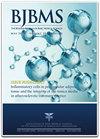ROS responsive polyethylenimine-based fluorinated polymers for enhanced transfection efficiency and lower cytotoxicity
IF 3.4
4区 医学
Q2 MEDICINE, RESEARCH & EXPERIMENTAL
引用次数: 1
Abstract
Cationic polymer polyethylenimine (PEI) plays a crucial role in gene delivery. However, high molecular weight PEI leads to higher efficient transfection efficacy and higher cytotoxicity, while low molecular weight PEI exhibits lower transfection performance with lower toxicity. Therefore, effective chemical modification of PEI is required to enhance transfection activity and improve biocompatibility. Here, reactive oxygen species (ROS) responsive PEI-based fluorinated polymers (TKPF) with three degrees of fluorination (TKPF 12.5%, TKPF 25%, and TKPF 50%) were designed and synthesized by crosslinking low molecular weight PEI (PEI 1.8K) with a thioketal (TK) linker and then modifying heptafluorobutyric anhydride onto their surface. Fluorination reduced the positive charge density and endowed hydrophobic and lipophobic characteristics to resist serum interactions. The fluorophilic effect mediated efficient cellular uptake and endosomal escape while ROS-responsive TK linker allowed the polyplex disassembly to decrease the cytotoxicity of the polycations and improve the release of payloads at specific sites. TKPFs attained superior transfection efficiency in multiple cell lines (293TN cells and B16F10 cells) in vitro and showed excellent biocompatibility. TKPFs also exhibited great serum resistance in gene delivery and TKPF 50% transfected nearly 80% cells in the presence of 70% FBS. These results demonstrate that the fluorination and ROS responsiveness combined polycations are excellent gene-delivery vectors with serum-resistant capacity for further application.ROS响应性聚乙烯亚胺基氟化聚合物提高转染效率和降低细胞毒性
阳离子聚合物聚乙烯亚胺(PEI)在基因传递中起着至关重要的作用。然而,高分子量PEI导致更高的有效转染效率和更高的细胞毒性,而低分子量PEI表现出更低的转染性能和更低的毒性。因此,需要对PEI进行有效的化学修饰,以提高转染活性和生物相容性。本文设计并合成了具有三个氟化度(TKPF 12.5%、TKPF 25%和TKPF 50%)的活性氧(ROS)响应性PEI基氟化聚合物(TKPF),方法是用硫酮(TK)连接体交联低分子量PEI(PEI 1.8K),然后在其表面改性七氟丁酸酐。氟化降低了正电荷密度,并赋予疏水和疏脂特性以抵抗血清相互作用。亲氟效应介导了有效的细胞摄取和内体逃逸,而ROS响应性TK接头允许多聚体分解,以降低聚阳离子的细胞毒性,并改善有效载荷在特定位点的释放。TKPFs在体外的多个细胞系(293TN细胞和B16F10细胞)中获得了优异的转染效率,并显示出优异的生物相容性。TKPFs在基因递送中也表现出很大的血清耐药性,在70%FBS存在下,TKPF50%转染了近80%的细胞。这些结果表明,氟化和ROS反应性结合的聚阳离子是具有血清抗性的优秀基因递送载体,可进一步应用。
本文章由计算机程序翻译,如有差异,请以英文原文为准。
求助全文
约1分钟内获得全文
求助全文
来源期刊

Bosnian journal of basic medical sciences
医学-医学:研究与实验
CiteScore
7.40
自引率
5.90%
发文量
98
审稿时长
35 days
期刊介绍:
The Bosnian Journal of Basic Medical Sciences (BJBMS) is an international, English-language, peer reviewed journal, publishing original articles from different disciplines of basic medical sciences. BJBMS welcomes original research and comprehensive reviews as well as short research communications in the field of biochemistry, genetics, immunology, microbiology, pathology, pharmacology, pharmaceutical sciences and physiology.
 求助内容:
求助内容: 应助结果提醒方式:
应助结果提醒方式:


